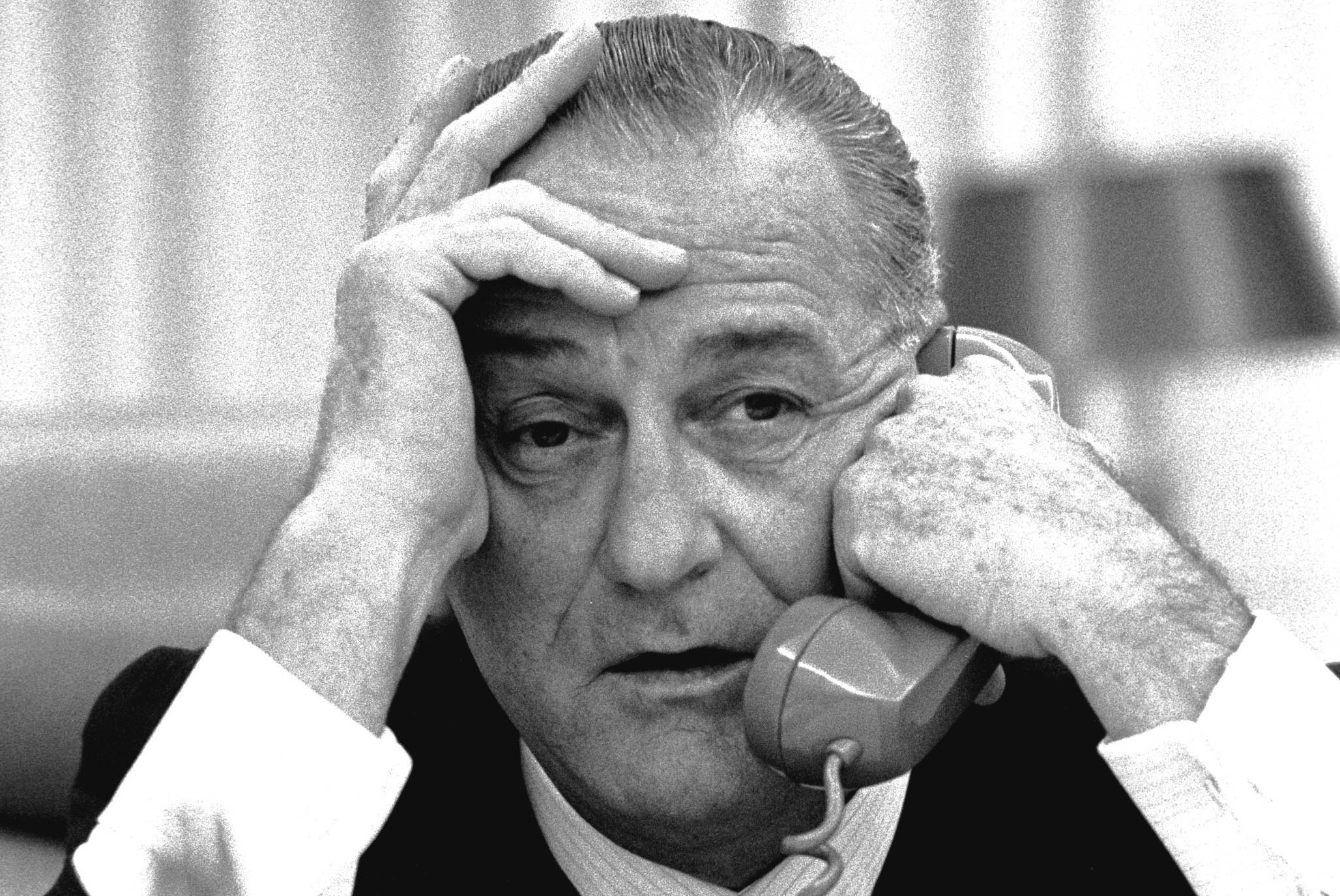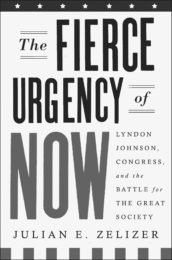The United States is a separation-of-powers system within which the chief executive has substantially less power over domestic policy than, say, a British prime minister. Despite this, legislation passed by the United States Congress tends to be associated very strongly with the president who signed the bills. The Affordable Care Act—addressing what has been a major liberal priority since at least the Truman administration and heavily influenced by many legislators—is becoming almost universally known as “Obamacare.” This tendency only increases over time—20 years from now, schoolchildren are much more likely to have heard of Barack Obama than Nancy Pelosi or Harry Reid.
When legislation endures, this is a good deal for presidents, but when they’re in the White House, it’s a double-edged sword. Not only a president’s enemies, but his sometimes allies, are likely to compare even an accomplished president unfavorably with his predecessors, whose failures and compromises tend to be forgotten. The ACA might be a major improvement, but shouldn’t the U.S. have universal health care comparable to other liberal democracies? Couldn’t Obama have gotten a trillion-dollar stimulus passed? Why didn’t Congress address climate change? A more forceful leader, like FDR or LBJ, surely would have done whatever it takes to get Congress to do what was necessary.
Except that they probably wouldn’t have.
Hospitable to Liberalism
Last year, Ira Katznelson’s tour de force Fear Itself showed that the New Deal was heavily dependent on segregationist Southern Democrats, who made the New Deal’s key social welfare provisions both more limited and egregiously racially discriminatory. And now, Julian Zelizer’s similarly useful account of the Great Society, The Fierce Urgency of Now, shows that the remarkably flurry of legislation passed in the three years following the assassination of John F. Kennedy was much less dependent on Lyndon Johnson’s unique leadership skills than is conventionally assumed.
It is tempting to explain the unusual progressive successes of the Great Society by depicting LBJ giving a hapless legislator “The Treatment,” and assuming that Johnson had ruthless leadership skills recent Democratic presidents lack.
None of this is to deny LBJ his due credit for the Great Society, just as Obama deserves substantial credit for the passage of the ACA, a process that could have failed at numerous points without his determination. And Zelizer makes it clear when and how LBJ’s leadership mattered. Johnson’s strong basic commitment to New Deal liberalism—not necessarily evident at the time of his ascension to the White House—was important in setting the national agenda. Having almost singlehandedly made the position of Senate majority leader a consequential one, he was better prepared than most presidents to deal with Congress from day one. (Bill Clinton, for example, made errors in his crucial first year in dealing with Congress that LBJ almost certainly would not have.) If a crucial vote of a Senate committee chairman could be bought off by reaching into the pork barrel, LBJ knew about it and would make the deal.
So it is tempting to explain the unusual progressive successes of the Great Society by depicting LBJ giving a hapless legislator “The Treatment,” and assuming that Johnson had ruthless leadership skills recent Democratic presidents lack. But the effect of these leadership tools, Zelizer shows, tends to be overrated in retrospect. LBJ did have some unique abilities that mattered at the margin. But the biggest factor in his legislative success was the simple fact that he was briefly working in a legislative environment that was unusually hospitable to liberalism.
With a Deft Hand
Where LBJ probably deserves the most credit is with respect to passage of the Civil Rights Act of 1964. While the statute had been proposed by JFK, when Johnson took office the smart money would definitely have been against its passage before the 1964 election, despite the increasing prominence of the civil rights movement. But LBJ played his hand effectively. He prevented Congress from holding a crucial tax-cut bill hostage by persuading his cabinet and liberal Democratic leadership to accept an arbitrary cap on federal spending demanded by Senate Finance Committee Chairman Harry Byrd. And Johnson played a key role in creating a movement toward a discharge petition, which discouraged Virginia Democrat Howard Smith, the powerful segregationist chairman of the House Rules Committee, from bottling up the legislation in committee or allowing it to be larded with poison pill amendments.
It’s also important to note that to secure the support of Republican minority leader Everett Dirksen, Johnson agreed to substantially weaken the Equal Opportunity Employment Commission. The fact that the Illinois senator felt a responsibility to pass legislation and to compromise is one reason that the passage of Great Society legislation isn’t terribly relevant to the challenges faced by contemporary presidents.
Already on Your Side
But the most crucial factor working for Johnson was that congressional majorities didn’t have to be persuaded to favor civil rights. With the violence necessary to sustain American apartheid being revealed by the civil rights movement, not only liberals but moderates on both sides of the aisle supported the key provisions of the Civil Rights Act, making it easier to break the logjam created by a minority of Southern segregationists. Overcoming this minority obstruction was far from a trivial accomplishment, but it’s much more easily done when large majorities of Congress and the public are already on your side. And powerful social movements are much more likely to persuade recalcitrant legislators than are presidential blandishments.
LBJ wasn’t the only 1964 presidential candidate responsible for the substantial achievements of the 89th Congress. Barry Goldwater deserves some credit for the progressive legislation Johnson signed into law, including Medicare, Medicaid, and major federal educational and anti-poverty spending. Johnson’s crushing defeat of Goldwater brought with it huge and unusually liberal Democratic congressional majorities. The Republicans who survived “were profoundly shaken by the election returns and believed they could no longer afford to obstruct Johnson’s proposals.”
Zelizer also shows that Medicare was not imposed top-down by Johnson, but its shape was largely determined by negotiations within Congress, with LBJ frequently taking a hands-off role. (And the decision not to pursue universal health care reform was in itself a major compromise, particularly since the decision to provide health insurance to those over 65 made getting the necessary support for European-style health care effectively impossible.)
The liberals who built the Great Society also derived some political capital from a darker source: the escalating disaster in Vietnam. Unlike Nixon, who was willing to sign almost any legislation a Democratic Congress put on his desk if it left him free to conduct foreign policy, Johnson is portrayed in The Fierce Urgency of Now as a president with little interest in foreign policy beyond a standard commitment to Cold War liberalism. He was willing to allow the war to continue, because ending it might have limited his ability to expand the New Deal, with ultimately disastrous consequences.
Severely Limited
We don’t have to speculate how effective LBJ’s leadership would be without a rare functioning liberal majority in Congress. After suffering major losses in the 1966 midterms, Johnson’s legendary leadership capabilities were of little value. In his final two years in office, he was forced to accept huge cuts to domestic spending, and could only pass a watered-down version of the Fair Housing Act as rioting broke out in cities across the country in the wake of the assassination of Martin Luther King, Jr. Just as FDR was helpless to stop the conservative coalition of Republicans and Southern Democrats from effectively taking over Congress, LBJ wasn’t able to sustain the liberal momentum created by his 1964 landslide.
Clearly written and brimming with telling historical details and sharp insights, The Fierce Urgency of Now is essential reading not only for those who want to understand the Great Society but for everyone concerned with how it might be preserved or expanded. The occupant of the White House matters, but without both willing collaborators in Congress and grassroots pressure, the ability of presidents to move the legislative needle will always be severely limited.
Scott Lemieux is a professor of political science at the College of Saint Rose. He is a frequent contributor to The Guardian and The American Prospect, and he blogs for Lawyers, Guns and Money.





0 Comments